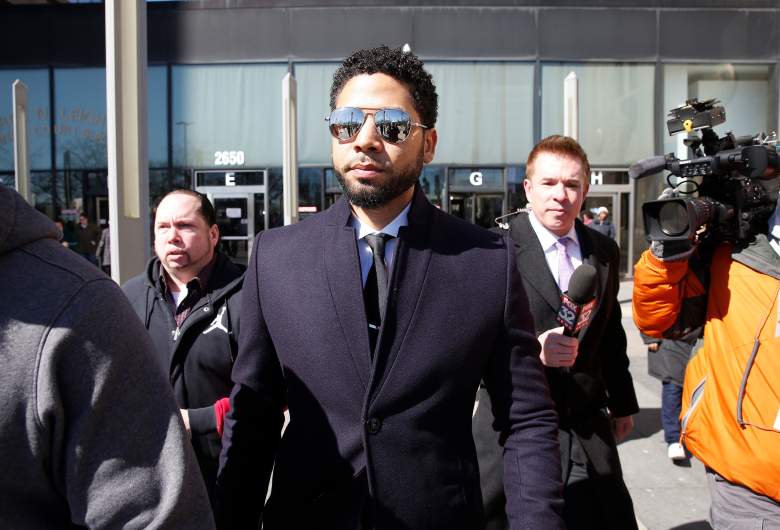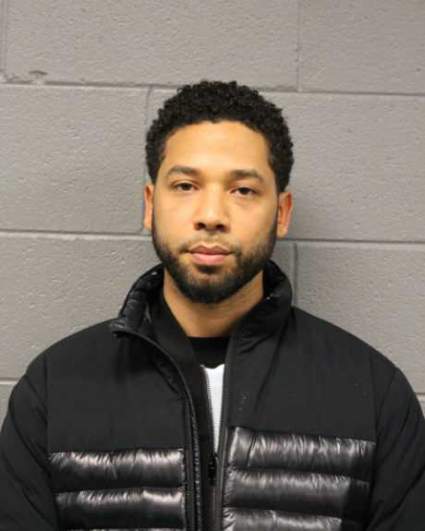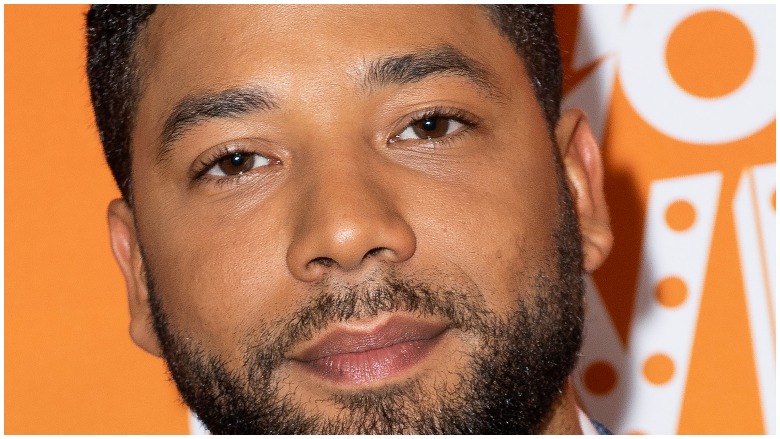
Getty How Cook County usually handled deferred prosecutions differs from the Jussie Smollett case.
The Cook County State’s Attorney’s office has dropped all charges – multiple felonies – against Empire actor Jussie Smollett. That’s led to a furious debate over the decision, which was made by Joe Magats, a deputy prosecutor in the office.
Did Jussie Smollett receive special treatment? Normally, a defendant seeking to have charges dismissed in cases where the prosecutor admits there wasn’t a problem with the evidence could enter what is called a deferred prosecution. In Cook County, such agreements typically involve elaborate agreements and monitoring that can result in charges being dismissed over time if a defendant completes certain conditions.
In the Smollett case, the charges were dismissed on the front end because Smollett has done community service on his own, the case was sealed, and it doesn’t appear that it was handled as a formal deferred prosecution agreement (the latter according to Smollett’s lawyer but also lawyers who spoke to Chicago media).

Chicago Police DepartmentJussie Smollett’s mugshot following his February 21 arrest.
In fact, the charges were already wiped off Smollett’s record. All of that makes the way the case was handled more ripe for questions. “What Foxx’s office characterized as winding up the case under ‘deferred prosecution’ laws appeared to be the State’s Attorney’s Office simply dropping the charges little over a month after he was charged,” the Chicago Sun-Times reported, indicating that lawyers were expressing surprise. The Chicago Tribune said Smollett forfeited $10,000 bond, and it wasn’t clear why the judge agreed to seal the case.
The Tribune noted that Magats told the newspaper he wasn’t sure how many hours of community service Smollett worked, adding that Smollett “may have done work with one of the Rev. Jesse Jackson’s organizations.”
One defense attorney in the courtroom, Dave Gaeger, told the Chicago Sun-Times newspaper that he’d never seen a case handled this way and added, “There is deferred prosecution, but based on what I heard in court today, that’s not what this was. (Smollett) was not in a pre-trial diversion program. There was no time frame set for him to complete certain conditions. His case was dismissed, based on community service he’d already done, and money.”
Of course, charges are dropped all the time when prosecutors can’t meet their burden of proof or because of other problems in the case, but Magats has said that was not what happened here.
Both Mayor Rahm Emanuel and Police Superintendent Eddie Johnson expressed great anger over the decision. “This, without a doubt, is a whitewash of justice and sends a clear message that if you’re in a position of influence and power you’ll get treated one way. Other people will be treated another way,” Emanuel said. “There is no accountability then in the system. It is wrong, full stop.” Smollett was indicted on 16 felony accounts in connection with what police said was a staged hate crime hoax.
Magats is defending his decision to drop charges (his boss, Kim Foxx, recused herself after contact on the case with a Smollett relative and former Michelle Obama chief of staff.)
First, here’s why Magats says he made the decision. Then, we will analyze how deferred prosecution agreements normally work in Cook County.
“There is no deferred prosecution . . . The state dismissed the charges,” Smollett’s attorney Patricia Holmes said. “We believe it was the correct result . . . We are very anxious for Jussie to get on with his life.” For his part, Magats called the decision to drop charges an “alternative” way to handle the case disposition.
Magats Says His Office Didn’t Exonerate Smollett

Getty
What’s unusual about the prosecutors’ handling of this is case is that they’re both dropping the charges but also not saying there was anything wrong with the evidence brought forth by police. In other words, they’re also not saying that they don’t agree with the police assessment, and police said it was a hoax. Furthermore, the penalty, if it can be called one, appears to revolve around the bail forfeiture and community service that Smollett has already done.
Normally, in what are commonly called deferred prosecution agreements, an agreement spells out conditions that a defendant must meet over a certain period of time in order for charges to then be dropped or reduced. Such agreements also sometimes require some semblance of remorse, whereas Smollett is essentially proclaiming vindication. (Smollett’s spokeswoman told The New York Times: “Today, all criminal charges against Jussie Smollett were dropped and his record has been wiped clean of the filing of this tragic complaint against him. Jussie was attacked by two people he was unable to identify on Jan. 29. He was a victim who was vilified and made to appear as a perpetrator as a result of false and inappropriate remarks made to the public causing an inappropriate rush to judgment.”)
Magats defended the decision to drop charges in an interview with the Chicago Sun-Times and claimed that Smollett was not treated differently. “It’s a nonviolent crime. He has no felony criminal background. If you start looking at the disposition in the case, in every case you need to look at the facts and circumstances of the case, and the defendant’s background,” he said, adding that the court didn’t order community service but Smollett had done it even after being charged.
Magats also told the Sun-Times that the decision to drop charges did not mean that prosecutors think Smollett was a crime victim (he was accused of staging a fake hate crime attack). He also said it was not meant as a repudiation of the police investigation, telling the Sun-Times, “Absolutely not. We stand behind the CPD investigation done in this case, we stand behind the approval of charges in this case. They did a fantastic job. The fact there was an alternative disposition in this case is not and should not be viewed as some kind of admission there was something wrong with the case, or something wrong with the investigation that the Chicago Police did.”
Magats told The New York Times: “We stand behind the investigation, we stand behind the decision to charge him and we stand behind the charges in the case. The mere fact that it was disposed of in an alternative manner does not mean that there were any problems or infirmities in the case or the evidence.”
He also said: “Here’s the thing — we work to prioritize violent crime and the drivers of violent crime. Public safety is our number one priority. I don’t see Jussie Smollett as a threat to public safety.” He concluded, to reporter Julie Bosman of the Times, “We didn’t exonerate him.”
In a statement, the Cook County State’s Attorney’s office said, “After reviewing all of the facts and circumstances of the case, including Mr. Smollett’s volunteer service in the community and agreement to forfeit his bond to the city of Chicago, we believe this outcome is a just disposition and appropriate resolution to this case.”
Deferred Prosecution Agreements Generally Involve Careful Monitoring & the Passage of Time

GettyKim Foxx, the Cook County State’s Attorney.
In 2015, the Illinois Criminal Justice Information Authority released a study of deferred prosecutions in Cook County.
“The Cook County State’s Attorney’s Office implemented its alternative sentencing-focused Deferred Prosecution Program in February 2011. The Illinois Criminal Justice Information Authority awarded a grant to the Loyola University Chicago to evaluate the program in 2013,” the report says.
It explains in detail how the cases were historically handled, saying:
The Deferred Prosecution Program offers certain first-time, non-violent felony offenders a chance to avoid a conviction upon successful completion of a 12-month program. Defendants are screened by Assistant State’s Attorneys based on charge and criminal background. Defendants charged with retail theft, burglary, theft, drug possession, credit card and ID fraud, and fraud are eligible for the program. If both the victim and the defendant agree to program participation, the case is assigned to a pre-trial services officer that monitors the participant’s progress over the next nine to 12 months. A number of conditions may be imposed, including payment of restitution, enrollment and attendance in GED programs, community service, and agreement to not violate any laws or possess a firearm or deadly weapon. Upon successful completion of the program, the defendant’s felony change is dismissed and participants are given guidance on arrest record expungement.
The top charges accepted into the program were retail theft and marijuana possession, according to that study.
The Cook County chief judge’s website explains in detail how deferred prosecution agreements are supposed to work. “In order to qualify for consideration for acceptance into the program, an individual must be charged with a felony offense by way of a complaint for preliminary examination that is pending in a preliminary hearing courtroom in any municipal district of Cook County and must be selected by the Cook County State’s Attorney’s Office as a candidate for the Deferred Prosecution Program,” the website says. “The candidate and the State’s Attorney’s Office shall execute in open court an agreement to participate in the State’s Attorney’s Deferred Prosecution Program. Before being executed, the agreement shall be made part of the court record filed with the clerk, and made part of the court file. The court shall then advise the candidate of his or her right to a preliminary hearing and explain it fully to the candidate. The candidate and the State’s Attorney’s Office shall execute a waiver of a preliminary examination which shall be filed by the clerk and made part of the court file.”
In such instances, defendants’ behavior is closely monitored. “The candidate will be screened by members of the Adult Probation Department’s Pre-trial Services Unit, the State’s Attorney’s Office and TASC. The case shall be continued to a 90 day status date in Branch 9 so as to monitor the progress of the candidate,” the website says.
“If the candidate breaches the agreement and fails to comply with the conditions of same, the state shall motion the case up to advise the court. At that time, the court shall transfer the case to the presiding judge of the Criminal Division for a date 21 days hence based upon the waiver of preliminary examination executed previously. If the candidate successfully complies with all of the conditions of the agreement, the State’s Attorney’s Office shall motion the case up in Branch 9. The court shall be advised in the premises and the state shall nolle prosequi all charges against the candidate.”
This is a common way that deferred prosecutions are handled: Agreements are crafted, and a defendant’s charges are dismissed only after a period of time and monitoring. For example, in neighboring Wisconsin, the Department of Justice explains of deferred prosecutions in that state: “Under Wisconsin law, Deferred Prosecution Agreement (DPA) and Deferred Acceptance of a Guilty Plea (DAGP) allows a person facing criminal charges to enter into an agreement with the court to fulfill certain conditions in return for reduced charges or dismissal. To be eligible to participate in a deferred prosecution an offender usually has a limited criminal record, accepts responsibility for the offense, and must be willing to participate in the agreement.”
There is also a misdemeanor diversion program in Cook County. “Diversion eligibility also required the defendant to be charged with a nonviolent misdemeanor; not to have any prior violent conviction within the past ten years; and not to have a pending case in any court at the time that the current case was filed,” Court Innovation explained in a study.
The Chicago Tribune’s reporting on a federal deferred prosecution agreement involving Congressman Aaron Schock also illustrates how these agreements often work. Schock, as part of the agreement, “must pay back taxes to the IRS and $68,000 to his congressional campaign funds. If he does so — and stays out of any new trouble for six months — prosecutors would drop all felony counts against Schock in September, leaving him with a clean record,” the Tribune reported.